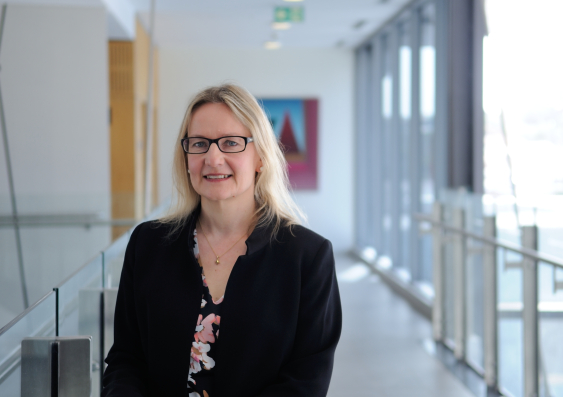UNSW academic appointed to the World Dementia Council
Kaarin Anstey will become a member of the international organisation that aims to transform the lives of people with dementia.
Kaarin Anstey will become a member of the international organisation that aims to transform the lives of people with dementia.

Yolande Hutchinson
Corporate Communications
0420 845 023
y.hutchinson@unsw.edu.au
Professor Kaarin Anstey from the UNSW Ageing Futures Institute has been appointed to the World Dementia Council, opens in a new window (WDC). The international charity consists of 24 senior experts and leaders in research, academia, industry, governments, and people with lived experience in dementia across six continents.
“It is a great honour to be appointed to the World Dementia Council. The Council is a visionary organisation that brings stakeholders together to influence all sectors to invest in dementia research and services, and to improve the lives of people living with dementia,” Prof. Anstey said.
“The challenge of dementia is complex and requires solutions that span from basic science, through the public policy interventions, and large-scale investment in drug development and data science. The World Dementia Council can address these issues at a high level.”
UNSW Dean of Science Professor Sven Rogge congratulated Prof. Anstey on her prestigious appointment.
“Becoming the first Australian academic appointed to the World Dementia Council is a wonderful recognition of Professor Anstey’s international standing in dementia research,” Prof. Rogge said.
“Her research on dementia prevention and cognitive resilience is effectively addressing the challenges and opportunities of our ageing population.”
Read more: Three UNSW researchers elected to Academy of Health and Medical Sciences
Dementia is a collection of symptoms that contribute to the loss of cognitive function – including thinking, remembering, and reasoning.
“Globally it is estimated that more than 50 million people are currently living with dementia. This number is estimated to increase to 152.8 million people by 2050 due to population ageing,” Prof. Anstey explained.
While these numbers are worrying, Prof. Anstey says there are ways we can take early action against dementia.
“As we age, risk reduction is incredibly important because there is currently no cure for dementia. Research shows that modifiable risk factors have effects that are independent from genetic risks. Following guidelines and strategies that promote optimal brain health can delay the onset of cognitive decline and potentially reduce risk of dementia,” Prof. Anstey said.
“For individuals, good access to health care is important. People need to manage cardiovascular risk factors in middle age, exercise, eat healthily, don’t smoke, treat depression, and stay socially and cognitively engaged.
“For policy makers, we need to encourage children to stay in school to build what we call cognitive reserve, to have social policies that promote and enable healthy lifestyles throughout life, reduce air pollution, and provide access to health services and affordable healthy food for all.”
Prof. Anstey said that a fascination with individual differences in how people age, and personal experiences with people living with cognitive impairment motivated her to work in dementia research.
“The sheer scale of the challenge of dementia means that work in this field is constantly reaching into new areas, and there is huge potential to make a difference for many people. At the heart of healthy ageing is a healthy mind.”
The next steps in Prof. Anstey’s research involves implementing the dementia risk assessments and interventions her team has developed. These enable people to know their risk and take practical steps to reduce their risk of dementia, as well as support their own cognitive health.
“We are also seeking to uncover novel causes of cognitive resilience – to understand why some people do not develop memory loss and cognitive decline, despite having genetic and lifestyle risk factors for cognitive decline. This may lead us to new interventions to promote cognitive health in ageing,” Prof Anstey said.
Prof. Anstey is a conjoint senior principal research scientist at Neuroscience Research Australia. She chairs the International Research Network on Dementia Prevention and is a member of the governance committee of the Global Council on Brain Health, an initiative supported by the American Association of Retired Persons (AARP).